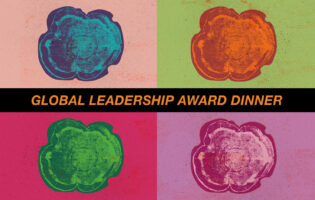A Stronger German-American Alliance

Peter Rough
Hudson Institute
Peter Rough has been a fellow at Hudson Institute in Washington, DC, since 2014. He writes and comments on U.S. foreign policy toward Europe and the Middle East and edited Hudson’s journal, Current Trends in Islamist Ideology. Prior to joining Hudson, Peter collaborated on a social history of World War I in the Middle East, A Land of Aching Hearts, published by Harvard University Press in fall 2014. A former associate director in the White House Office of Strategic Initiatives, he also served as director of research in the Office of George W. Bush, assisting the former president with his memoir, Decision Points.
Peter has completed stints as a policy analyst at the U.S. Agency for International Development and as an advisor to U.S. Army Special Operations Command. He also helped direct foreign policy working groups for the Romney and Rubio presidential campaigns, focusing on Russia and the Middle East, respectively. A proud native of Des Moines, Iowa, he is a graduate of the George Washington University and the Fletcher School of Law and Diplomacy, where he was a Cabot Corporation Scholar. He is a native German speaker.
He was a 2017-2018 participant in AICGS’ project “A German-American Dialogue of the Next Generation: Global Responsibility, Joint Engagement,” sponsored by the Transatlantik-Programm der Bundesrepublik Deutschland aus Mitteln des European Recovery Program (ERP) des Bundesministeriums für Wirtschaft und Energie (BMWi).
Political surprises have been a theme in 2016 and 2017, starting with the Brexit referendum, to the election of Donald Trump, to the success of Emmanuel Macron’s new party in France, to a weakened Angela Merkel and her difficulty forming a government. With growing populism and disruption seen on both sides of the Atlantic, it’s possible that these surprises are only the beginning. The question now is: what’s next? This is the focus of AGI’s new series, A Time of Testing and Transition: German-American Relations in 2018.
More than any other country, Germany has profited from the post–Cold War international system. As a close ally of the world’s superpower and bordered by smaller, friendly powers, it has had the luxury of abjuring hard power — an attitude reinforced by the trauma of its 20th-century history. Instead, much like Japan, it has channeled its energies into economics, transforming itself into a trading superpower that earns almost half of its gross domestic product from exports. Today, German industry dominates the European economy, surfing along on a wave of success. Read more.








